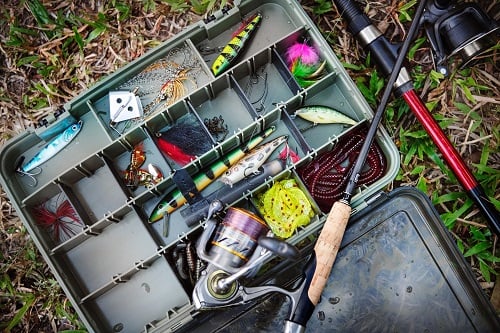Fishing in Iceland
As an island, it shouldn’t come as a surprise to you that fish and other seafood make up a large part of the traditional Icelandic diet. Fishing has always played a large part in Iceland’s culture and economic history, but many people who visit Iceland also enjoy fishing during their trip.
It’s important if you are planning to go fishing in Iceland that you understand the laws around fishing, the types of fish available, and the best ways to experience fishing. Here, we have all the information you need to know about fishing in Iceland.
History and culture
Fishing in Iceland has been a way of life since it was settled. The plentiful waters surrounding Iceland were relied upon by Icelanders through the ages as a way to feed the people, an important part of the economy, and eventually of the country’s main exports. As a result of fishing’s important history in Iceland, you will see countless charming fishing villages on your travels.
For the early settlers of Iceland, there were no real other sources of food. The only mammal native to Iceland is the Arctic Fox, and the rest of Iceland’s wildlife was very limited and left nothing for hunting. Because of this, Iceland’s first settlers in the 7th century relied almost solely on fish and other seafood for sustenance.
There are a number of museums in Iceland that showcase fishing through the ages.

Types of fish in Iceland
If you’re planning to some angling on your trip to Iceland, you’re in luck. There are many different species found both in the freshwater rivers inland as well as in the saltwater bodies surrounding the island. While river fishing is popular, there are many more species of saltwater fish in Iceland as you might imagine.
Freshwater species of fish in Iceland:
-Atlantic Salmon
-Brown Trout
-Arctic Char
Saltwater species of fish in Iceland:
-Pollock
-Atlantic Cod
-Catfish
-Halibut
-Haddock
-Mackerel
Fishing laws
With some of the species of fish in Iceland being endangered and protected and most of the rivers privately owned, it’s important that you understand the fishing laws in Iceland to make sure that you don’t break them and that you remain respectful of the activity. As you would expect, river and lake fishing in Iceland requires a legally obtained permit and for certain species, fishing is only allowed at certain times of the year. Anyone bringing their own fishing gear into Iceland will need to obtain a certificate of disinfection. You can find out more about this and other fishing laws here.
Fishing tours
One of the best ways to make sure you get the most out of your fishing trip to Iceland is to sign up with a reputable company who provides fishing tours or adventures. There are plenty of tour operators in Iceland that provide both sea and river or lake fishing experiences.
Fishing tours are more convenient and offer the benefit of having an Icelandic fishing expert show you the ropes, take you to the best locations, and help you have the best experience possible. Through a tour operator, you can also make sure that you have the correct permits you will require, the right equipment and the comfort of knowing you are fishing in a legal and responsible way.

